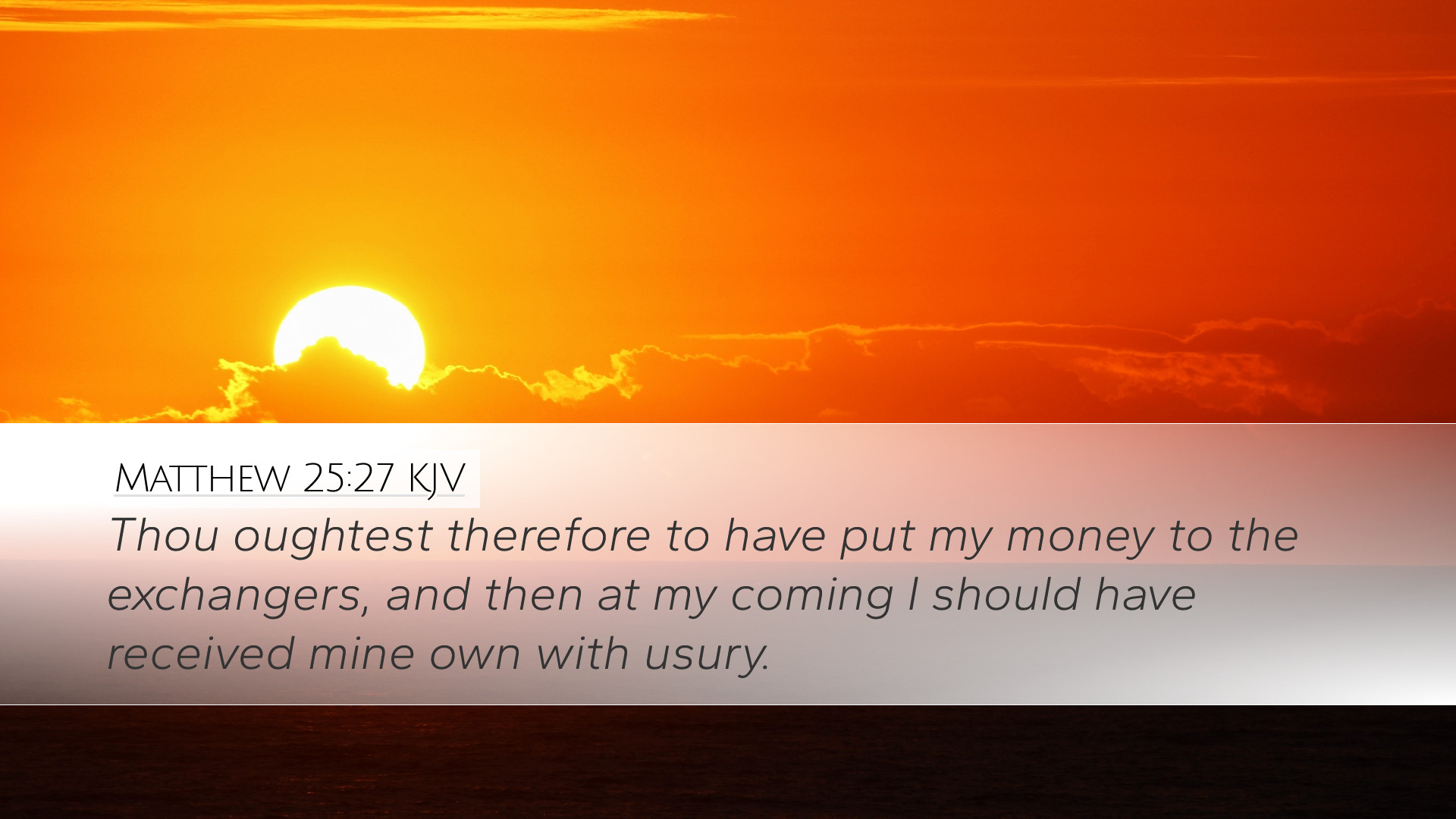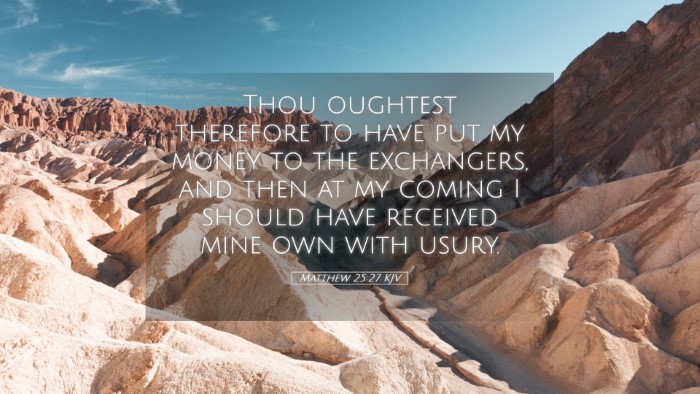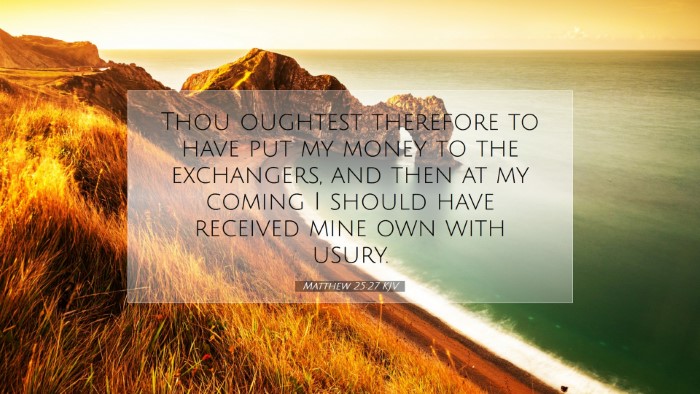Commentary on Matthew 25:27
Verse Reference: Matthew 25:27 (KJV) - "Thou oughtest therefore to have put my money to the exchangers, and then at my coming I should have received mine own with usury."
Introduction
This verse is part of the Parable of the Talents, which illustrates the responsibility of believers to use their God-given abilities and resources for His glory. In this parable, the master represents Christ, and the servants represent His followers. Jesus highlights the expectation of productivity and faithfulness in stewardship.
Exegesis of Matthew 25:27
From an exegetical perspective, this verse serves as a rebuke to the servant who buried his talent rather than investing it. The expectation of the master is clear: the servant should have taken the initiative to put the money to work. This admonition recognizes the importance of engaging with one's resources rather than hiding them.
Comments from Public Domain Commentaries
Matthew Henry's Commentary
Matthew Henry emphasizes the folly of neglecting to use what has been entrusted to us. He remarks that the servant’s inaction was a clear failure in stewardship, implying that believers are accountable for how they use their gifts and resources. Henry points out that the 'exchangers' represent those who could have benefitted from the talent, highlighting the communal aspect of stewardship. The master’s return signifies the inevitable accountability every believer will face.
Albert Barnes' Notes on the Bible
Albert Barnes elucidates the “exchangers” as those who lend money and provide a return, implicitly stating that our investments in the Kingdom of God should bear fruit. His commentary stresses the importance of diligent work and activity in the Kingdom, signifying that simply preserving what we have is insufficient. Barnes asserts that the master’s expectation of receiving back with ‘usury’ illustrates the principle of yielding a return on what God has given to us.
Adam Clarke's Commentary
Adam Clarke provides an in-depth look at the cultural context of banking practices during the time of Christ. He discusses how the act of depositing money with the exchangers was a common practice that generated interest. Clarke argues that this illustrates that even the smallest effort to utilize one’s resources can have positive returns. He further expounds that the servant’s failure was not simply inaction, but an indictment of his character, as he did not trust his master’s intention and capability.
Theological Reflections
The theological implications of this verse are significant for understanding Christian stewardship. Each believer has been entrusted with gifts, resources, and opportunities that must be actively employed for the advancement of God’s Kingdom.
Stewardship and Accountability
- Active Engagement: The verse calls for active engagement in our spiritual and material responsibilities. It challenges us to consider how we are utilizing the gifts and resources bestowed upon us.
- Expectations from God: There is an expectation from God that we should aspire toward growth and return on what He has invested in us. This challenges a passive faith that merely awaits Christ’s return.
- Community Impact: The reference to 'exchangers' underscores that our stewardship is not only for personal gain but is meant to benefit the broader community and the body of Christ.
Application for Believers
In light of Matthew 25:27, believers are challenged to evaluate their lives in terms of productivity and fruitfulness. Questions for reflection include:
- What gifts, talents, or resources has God entrusted to me?
- How can I engage actively with what I have been given to produce a return for the Kingdom of God?
- Am I using my abilities in a manner that reflects the character of Christ and benefits others?
Conclusion
Matthew 25:27 serves as a poignant reminder of the responsibility every believer carries. The call to action is clear: rather than burying our talents, we are to invest them wisely, ensuring a return that honors our Master. As we reflect on this verse, may we be inspired to engage fully and responsibly in the areas where God has placed us, anticipating His return with evidence of our faithfulness.


